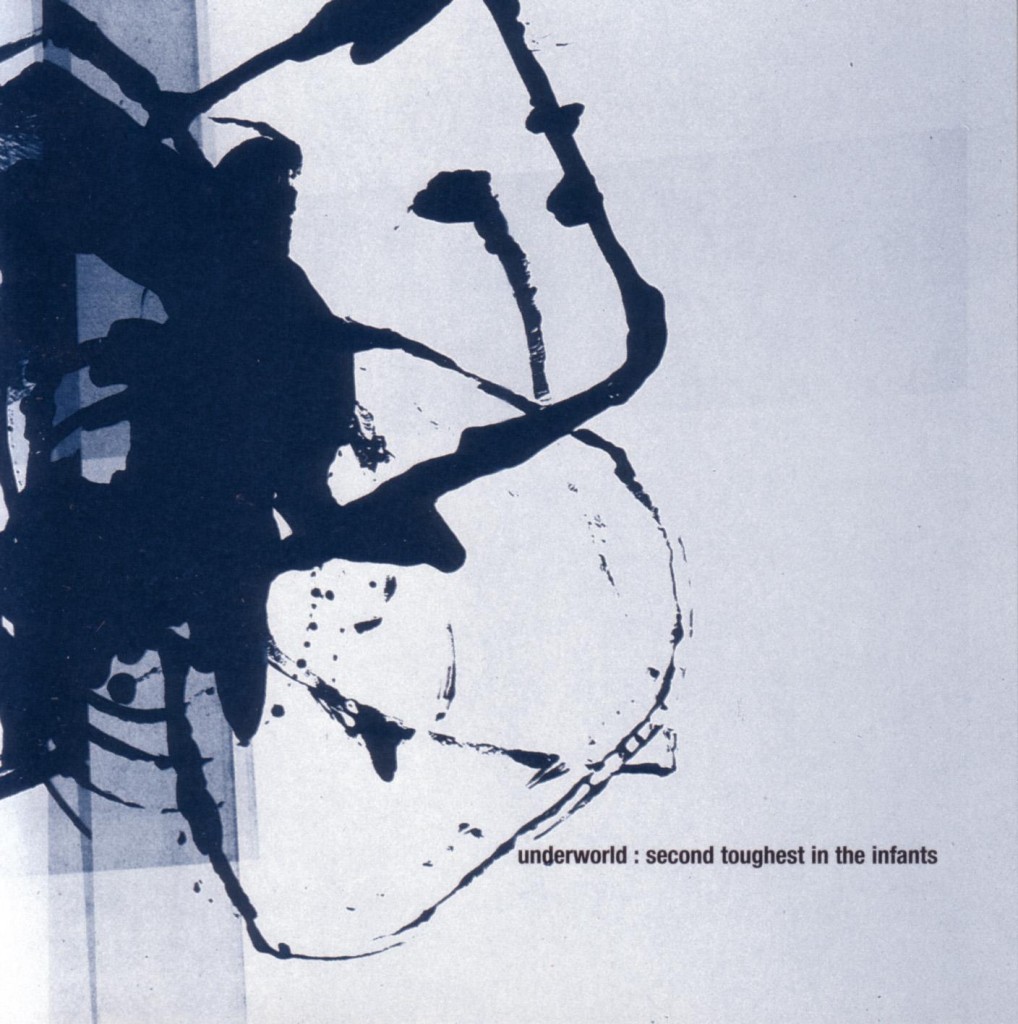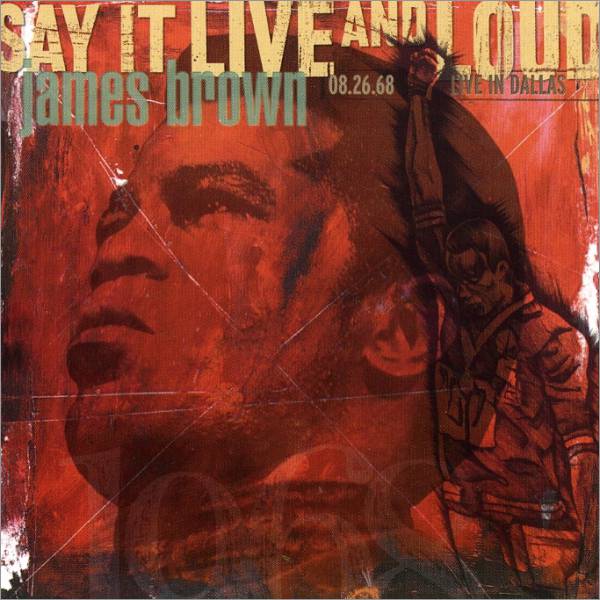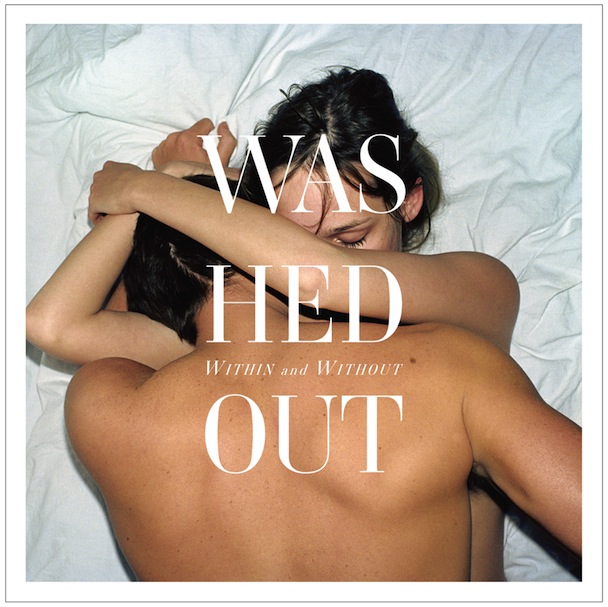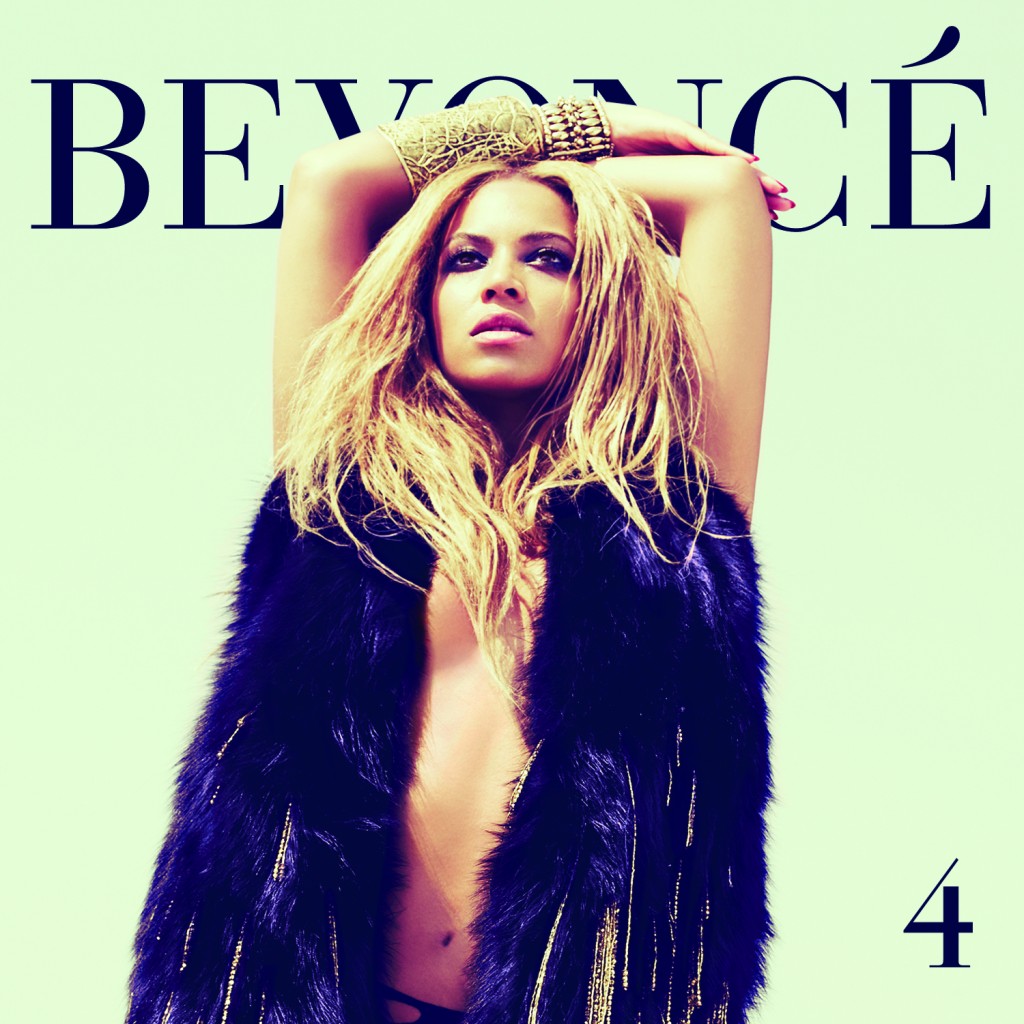Posts Tagged ‘music reviews’
The Superheroics of Muse
November 30, 2012I wrote a piece on Muse as legacy superheroes and Matt Bellamy’s voice as their superpower for BuzzFeed Music. The piece was pitched to me as “What is the essence of Muse? What is it people like about them beyond sounding like Queen and Radiohead?” This is what I came up with. Big thanks to my pal Matthew Perpetua for whipping it into shape.
Let your body move to the music
November 26, 2012I wrote about “Vogue” by Madonna for my music tumblr, Cool Practice. The pre-sexual dreams of a starstruck sixth grader are invoked.
I encourage you to listen to the song and watch the video from beginning to end, especially if you haven’t done so in a long time. It’s remarkable how much anticipation and excitement she packs into that thing. It’s a curtain being drawn back on a new world.
Great band name or greatest band name?
October 17, 2012I wrote about Ned’s Atomic Dustbin and the coolest kid in high school for my music tumblr, Cool Practice. I still love everything about this band — totally inerrant melodic instincts, and that lead bass sound is singular, and the lyrics could not be more practical for the unlucky in love.
(The answer to the above question is Carter the Unstoppable Sex Machine, but Ned’s is a close second.)
How I Stopped Hating and Learned to Love Billy Joel
September 24, 2012I wrote an essay on growing up on Long Island and my resulting love-hate relationship with Billy Joel for BuzzFeed Music. I kind of can’t believe it either.
Does anybody remember laughter? / Teenage dreams, so hard to beat
September 12, 2012I wrote a list of 23 things John Bonham did during the quiet part of “Stairway to Heaven” for BuzzFeed Music. It is ridiculous, and yet I believe an accurate portrait of the John Bonham gestalt. It does not include this astonishing performance of “Kashmir” but you get it here anyway.
Led Zeppelin – Kashmir by bobjd78
I also wrote about “Teenage Kicks” by the Undertones for Cool Practice, my tumblr about music and coolness. Blueballs in music form.
My Top 100 Albums 1996-2011
August 16, 2012I listed my 100 favorite albums from 1996-2011 for the People’s List at Pitchfork. The image above is a spoiler.
“Give the finger to the rock and roll singer as he’s dancing upon your paycheck”
August 14, 2012I wrote about “Pay No Mind (Snoozer)” by Beck for Cool Practice, my tumblr about music and coolness. What a scathing song.
“This is what I turn into when I get very hungry”
August 8, 2012I wrote about “Rubber Rocket” by Electric Six for Cool Practice, my tumblr about music and coolness. The phrase “post-millennial Steely Dan” is used.
Today on Cool Practice
July 27, 2012I wrote about “Little Earthquakes” by Tori Amos on Cool Practice, my tumblr about music and coolness. I’ve been doing a lot of that kind of writing lately where you feel so strongly about a thing that you find yourself at a loss for words, so then you realize you have to make up the words for it.
Music Time
July 25, 2012Recently I wrote about “Voodoo-U” by Lords of Acid and “Born Slippy .NUXX” by Underworld for my tumblr about music and coolness, Cool Practice.
(I used to call all fast-paced electronic dance music “techno” — was that a common thing, like how all non-punks used to refer to all punk and post-punk people by shouting “DEVO!” at them?)
You shouldn’t have worn that dress?
June 15, 2012I wrote about a memorable live performance of “Sex Type Thing” by Stone Temple Pilots for my music tumblr, Cool Practice.
Music Time
June 8, 2012I felt like I should again note here that I’m writing about music for my new blog Cool Practice, about songs and videos that read as “cool” to me.
* Beastie Boys – “So What’cha Want”
* Public Enemy – “Fight the Power”
* Country Joe McDonald – “The ‘Fish’ Cheer/I-Feel-Like-I’m-Fixin’-to-Die Rag”
* Nine Inch Nails – “March of the Pigs”
I hope you like it.
Music Time: Lords of Acid – “The Crablouse (Ludo’s ‘Coming Even Harder’)”
April 20, 2012In its original version, which I think is the ’90s dance-industrial act Lords of Acid’s single best recording proper, “The Crablouse” was already one of the sleaziest songs I owned. What can you say about a paean to the erotic and orgasmic potential of pubic lice? The lyrics, barked by a female vocalist in a mic-distorted Euro-rap that gives way to a reach-for-the-heavens ululation in the chorus, don’t actually, you know, make any sense, but they didn’t need to. The point was simply “THIS IS A DIRTY SEXY SONG ABOUT DIRTY SEXY DIRTYSEX,” and the music flung a gigantic beat and huge guitars and synths and snarling raging panting jungle-beast vox at you to reinforce the point. (The immortal album cover by friend of the blog COOP didn’t hurt, either.)
Much as I like that original version, though, I think I like this remix by Carl. S. Johansen even better. I like it for its focus. Instead of the frantic, distortion-laden industrial instrumentation of the original, this is just big glittering washes and skittering snakes of synth, the kind of beat that always sounds like you’ve turned the bass up in your car too loud to be properly heard, and seven words’ worth of lyrics (not THOSE seven words, but you’re not on the wrong track) that boil the Lords’ entire dirty-dance project down to its barest and most goal-oriented essentials. (The EP it came on had a pretty great cover of its own.)
Maybe I’m overthinking it now, years later, but looking back this song must have hit me at just the right time. It’s loud, scary, heavy, danceable, utter anathema to square notions of taste, futuristic, weirdly lovely at times, and hyperbolically sexual in a relentlessly pleasure-seeking and bluntly honest way. A terrific fantasy version of adulthood for someone just becoming an adult! It didn’t all work out quite that way for me, I suppose, but you know, I did alright.
Music Time: Jay-Z and Kanye West – Watch the Throne
August 12, 2011Crossposted from All Leather Must Be Boiled.
On Watch the Throne, the new collaborative album by Jay-Z and Kanye West, the title phrase or a variation on it is uttered nine times over the course of sixteen songs. Meanwhile, a recurring orchestral sample — its nervous energy evoking the spooky bits of Magical Mystery Tour, sinister ’60s children’s movies, and the shifty-eyed rhythm of Radiohead’s “Paranoid Android” — shows up in looped form as an unofficial theme at the end or beginning of four separate tracks, including the opener “No Church in the Wild” above.
Did this remind anyone else of George R.R. Martin’s character mantras/catchphrases from A Song of Ice and Fire/Game of Thrones? “If I look back I am lost.” “Where whores go.” “It rhymes with…” “She’s been fucking [names redacted] for all I know…” “Kill the boy.” “You know nothing, Jon Snow.” “Valar Morghulis.” “Weese, Dunsen, Polliver, Raff the Sweetling…” In each of these cases, these are phrases that wounded, worried minds keep circling back and back and back to, obsessively. They’re phrases they cling to and phrases that haunt them.
Can you think of a better way to describe what the the repetition of the words “watch the throne” might mean to two men whose unquestioned position at the top of their field means, as Jay-Z puts it, that the only place they can find an opponent is in the mirror?
I’ve been writing a post comparing Watch the Throne to ASoIaF/GoT since my first listen, but when you play the game of Game of Thrones comparisons, you publish or you perish. Oh well! I actually don’t mind that other people have gotten there first, because it means that the initial, incorrect critical narrative about the album — two rich people rapping about how rich they are, which is bad because of the debt deal and the London riots or something — is falling by the wayside. It’s as if the pressure to turn reviews of an important album around in 24 hours (due to the record’s unexpected, exclusive, leak-thwarting midnight release on iTunes) led critics to forget that anything ever happened at any other time. If it’s not okay to rap about fame and wealth to a struggling audience, then flush the last two decades of hip-hop, including multiple chart-topping critically acclaimed albums by Jay-Z and Kanye West, down the toilet.
But not only is the thesis ridiculous, it’s not even accurate. Obviously Kanye and Jay rap a lot about their money and the stuff they’ve bought with it on this album, and obviously the names they’re dropping are high-end and/or highfalutin’ enough to stand out to critics under deadline pressure. (I bet the Museum of Modern Art didn’t expect to have almost as much of a role on this record as Frank Ocean does.) But you’d almost have to purposefully ignore the rest of the lyrics, and most importantly the sound of the thing, to think that’s all there is to it, to characterize this album as a less forceful-sounding Rick Ross record. For all the talk about life at the top, they seem about as comfortable there as Robert Baratheon, Eddard Stark, and the stained knight Jaime Lannister. The music is foreboding and paranoid, minor-key prog samples, witch house synths, and soul legends chopped and pitch-shifted into demon shouts and banshee wails. The lyrics describe difficulties — from Jay-Z copping to depression, to Kanye’s R. Crumb-like dissections of his sexuality and misogyny, to overcoming the obstacles of a racist society to “make it in America” only to discover that the higher they go, the fewer people like them they find — that go a lot deeper than the usual litany of complaints about haters and biters. Both aspects of the record are embodied by those repetitions — that cycling, recurring, uncomfortable theme music; “watch the throne, watch the throne, watch the throne,” over and over again. If they were comfortable on the damn thing, they wouldn’t constantly be telling themselves and everyone else not to take their eyes off it for a second.
Music Time: James Brown – “Cold Sweat” (Live in Dallas, 8/26/68)
July 21, 2011When my baby daughter gets fussy, which usually happens every night around 7:30, the one thing guaranteed to calm her down and cheer her up is for me to pick her up and dance around with her. So every night for about forty minutes or so we have a Daddy Dance Party, also known as Family Funky Time when my wife joins in. An undisputed highlight of the DDP playlist is this live version of “Cold Sweat” by James Brown from 1968, which over the course of its twelve minutes has exposed my daughter to more funk before age 2 months than I heard before age 20.
Virtually everything great about James Brown is on ample display in this recording. For starters, the man’s skills as a bandleader, even outside the studio and in a less controllable live setting, are quite simply astonishing. Listen as he and official bandleader Pee-Wee Ellis lead the group through an airtight version of the song, through minute after minute of vamping and solos, and back into the song again: Every note, every beat is hit hard enough to draw blood. As I listen to the thing, I marvel at his rapport with the band as they turn on a collective dime time after time — they seem linked almost at a telepathic level, where no cue comes as a surprise to anyone except everyone in the audience. Meanwhile, Brown’s charisma as a frontman is equally astonishing here. Those shrieks and yelps are really quite something, if you can try to forget you’ve heard them a million times and appreciate their ecstatic insanity afresh. But beyond that, his banter with both the band and the audience is funny and effortless, making cool-dude nonsense like “Excuse me while I do the boogaloo” or “If you ain’t got enough soul, let me know and I’ll loan you some — I got soul to burn” or introducing the latest dance move by challenging the band to guess its name (spoiler alert: it’s “the Detroit Pimp”) sound inspired, like a template young fans can apply when they want to be awesome.
But best of all, especially for those of us who’ve heard rock bands of Brown’s funk era stretch songs out into double-digit running times to enervating effect when performing live, there’s never a dull moment. The solos — fiery saxophone by Maceo Parker, follow-the-bouncing-ball bass from Alfonso Kellum, and most impressively, a double drum solo from Clyde Stubblefield and Nate Jones that ends with literally the funkiest break I’ve ever heard, driving the audience totally batshit — feel vital and exciting, an integral part of the performance, rather than a self-indulgent opportunity for the given player to show off while the rest of the band sneaks off for a cigarette break. And you never know when a lengthy vamp will be punctuated by Brown saying something funny or badass, or leading the band through snippets of Allen Toussaint and Lee Dorsey’s “Ride Your Pony” or Sam and Dave’s “Soul Man,” or quoting “my friend Sammy Davis,” or eliciting wild cheers from the audience with some unseen but undoubtedly crazy dance move, or god knows what else. The song is simply packed with pleasures I’m still discovering and delighting in after innumerable listens.
Music Time: Washed Out – “Before”
July 19, 2011My friend Matthew Perpetua is fond of pointing out that beneath the gauzy haze of shoegaze is sex, at least when it’s done right. The formlessness and distortion isn’t just an anti-mainstream distancing aesthetic, it’s an evocation of sex’s obliteration of the self, the way the boundaries between you and your lover, your conscious and unconscious, your conception of the present as a step toward the future and a present that envelops all of existence, all blur. There’s more to it than Kevin Shields blowing Alan McGee’s money on the perfect guitar tone, and a bunch of lesser lights ripping it off.
If the maligned alt-pop subgenre commonly called chillwave can accurately be described as bouncy beats and bubbly synths subjected to a shoegazey sheen, then it seems to me that Washed Out has always been the act that acknowledges that heat beneath the Hipstamatic filter. I think people looked at the cover of his debut EP, Life of Leisure, and came away thinking it was the usual amorphous hat tip to summer and beaches and nostalgia, but I always thought something crucial was being conveyed by the fact that it’s not just any beach scene, it’s photo of his wife swimming in the ocean during their honeymoon. There’s an erotic component to it that goes beyond making the music sound like your synthesizer was left out in the sun to melt a bit before you started playing it. That’s what I get from “Before,” the standout track from Within and Without. (And hey, you wanna talk about a cover that tips the album’s hand?) I say this even though I can’t understand a word Ernest Greene is singing, even though I can’t even make out the two-syllable sample that recurs every fourth measure. That last bit is sort of the barb on the end of the beat, the part that hooks you, makes the beat exciting to listen to as it cycles through the song (itself the most beat-driven on the album, in a sort of trip-hop sense). It’s what keeps you moving through showers of sound that ebb and flow in intensity: high-pitched cascades, low pulses of synthesized strings, tinkling melancholy melodic lines where the chorus might go, texture provided by live percussion. In other words, for all its shimmering softness, it’s actually quite a pressure cooker of aural information, designed to create an intensely sensual listening experience — not background music, not hey-remember-when nostalgia. It is a super sexy song. Listen to it with someone you fucked on your honeymoon.
Music Time: Interpol – “Pace Is the Trick”
July 8, 2011Pat as-above-so-below-isms like “the title says it all” normally drive me up the wall, but whaddayagonnado: “Pace Is the Trick” is the best Interpol song because of the rigorous and relentless pace of the guitar. The song itself is a midtempo number and not one of the band’s uptempo post-punk jams, but that distinctively brassy guitar never, ever ceases to be twanged with every eighth note. Like a traditional lead guitar line, each note is distinct, and the purpose is to deliver a melody; at the same time, like rhythm guitar, it’s a rhythmic element that gives the entire song a spine, even as its melody shifts and morphs from section to section. This pulls all the parts together and makes each new section and mood — determined by the varying timbre and intensity of Paul Banks’s vocals, the disappearances and reappearances of Sam Fogarino’s drums and the different beats he plays, and the degree to which the full band is engaged or holding back — feel like an inevitable outgrowth of the previous one. It’s one of those songs that makes me reflexively air-drum along when the loud parts kick in, and it’s that guitar, that literally non-stop “dundundundundundundundundundundundundundundundun,” that pulls me along for the ride. Meanwhile, Banks’s lyrics, delivered in perhaps his most finely struck balance between his laconic-croon and urgent-shout modes, use a variety of metaphors and outright declarations to cast love, or at least lust, as a matter of possession, predation, and destruction. As embodied in the song’s final lines — after ending the final iteration of the chorus (“and now I select you” etc.) by shouting about “the star-swept night,” Banks contributes to the lengthy outro by repeating “You don’t hold a candle” — it’s an enticingly toxic blend of seduction and contempt, tied together by a guitar that never allows any daylight between the two extremes.
Music Time: Drake – “Marvin’s Room”
July 5, 2011When last I checked in with Drake he was sounding like Everything But the Girl. In “Marvin’s Room” he’s sounding even more like Everything But the Girl — specifically “Single,” in which Tracey Thorn engages her ex in a bit of extraordinarily bitter concern-trolling over a hotel phone, accompanied a shuffling beat and ghostly synths. Voila, I’ve just described “Marvin’s Room” as well. But what Drake lacks in Thorn’s luscious vocal instrument he more than makes up for in a level of lyrical candor that is either really exquisite artistry or the complete lack thereof. This is a guy who’ll lilt “Fuck that nigga that you love so bad” like it’s the most romantic thing in the world, who’ll say “After a while, girl, they all seem the same / I’ve had sex four times this week — I’ll explain” in a song whose sketch of a chorus revolves around chiding his ex “I’m just sayin’ you could do better.” I have no idea if he knows what a leap it is to expose his assholishness to the world like this and is consciously making that leap, or if he’s simply so fascinated by himself that he’s sharing this information because he’s his own muse. In the end I’m not sure it matters if it makes for sad, lovely, disturbing music like this. Bonus points for repeating the ex’s incredulous “Are you drunk right now?” like it’s one of those Houston-to-Apollo transmissions from The Orb’s Adventures Beyond the Ultraworld.
Music Time: Beyoncé – “I Care”
June 30, 20114 is the first Beyoncé album whose slow, serious songs I don’t automatically skip. Good thing, too, because it’s mostly slow-ish, serious-ish songs, as opposed to Dangerously in Love, which dumped them at the back end of album; I Am…Sasha Fierce, which gave them their own disc; and her best record, B’Day, which nearly excised them altogether. The up-tempo “Countdown” is getting a lot of attention right now, with its Franken-pop construction and inspired gibberish like “ME and my BOOF and my BOOF BOOF ridin'” (thus joining “Ra-ra ah-ah-ah, roma ro-ma-ma, gaga ooh-la-la” and “Mama say, mama sa, mama ma coo sa” in the annals of great pop nonsense), but the album’s undisputed highlights for me are the aforeblogged lovesexy scorcher of a ballad “1+1” and this song, in which Beyoncé addresses a lover’s indifference by attacking it with the nearest weapon to hand, her voice. Listen to the way she shouts “IIIII CARE!” in the chorus, or just plain screams at the end of it — it’s like Chris Cornell wailing into the abyss of Andrew Wood’s heroin overdose in “Times of Trouble” by Temple of the Dog. Sonically the two songs aren’t even all that dissimilar: state-of-the-art production that creates a nice melancholy purple cushion of air around the instrumentation, in “I Care”‘s case the tumbling drums in particular. Hell, in a world where Bey’s mashing up Prince and Kings of Leon and having freaking Tricky do the Sean Paul part in “Baby Boy” at Glastonbury, I wouldn’t be surprised if I woke up tomorrow to find out she’d covered it. It’d be a fine outlet for the sort of skill and conviction she displays here (like the way her voice warbles when she says she’s been “deserted” or the way she sings along to the guitar solo like she can’t bear to stop pouring out the emotion she’s feeling), and for her ever-sharpening taste for interesting arrangements (“I Care” and “I Miss You” are mostly synth tones and spare percussion; the latter just sort of disappears rather than ends the way proper commercial pop songs do; even the Diane Warren-penned “I Was Here” has some weird spectral Interpol guitar stretching out from the end of the chorus). She’s taking the sort of stuff that usually made for turgid one-listen mom-radio bait and making it lively and engrossing. Frankly there’s not much she can’t do at this point.
Music Time: WU LYF – “Heavy Pop”
June 28, 2011Played from start to finish, WU LYF’s debut album Go Tell Fire to the Mountain comes across like a music-nerd Mark Millar Idea: “What if there was the most uplifting anthemic indie rock album ever…but the lyrics were GIBBERISH?” And like most Mark Millar Ideas, real and imagined, the joke gets old quickly. The formula is simple and adhered to with minimal variation: Cavernous production (the album was apparently recorded in a church; the ever-present pipe organ’s a tipoff too) plus chiming guitar plus glossolalia screamed at the top of lead singer Ellery Roberts’s lungs. Slow songs, fast songs, quiet songs, loud songs, every song on the album gets the same treatment. By the time you reach track nine or so, the initially bracing effect of the approach, this sense that you’re witnessing something that’s half-hymn, half-howl at the moon, is diluted through repetition and general lack of imagination. No amount of Captain Caveman hollering is going to distinguish the umpteenth life-is-beautiful, we’re-all-in-this-together Joshua Tree legacy-character record.
But everything that makes WU LYF a lousy place to live makes it a terrific place to visit for the five minute, thirty-five second duration of the album’s concluding track, “Heavy Pop.” An admirably lengthy, virtually ambient organ introduction sounds like the world is slowly waking up, and when those first guitar notes hit, it’s like rays of morning sun, and Roberts is like a man screaming right back into the sky, greeting the dawn with defiance. It’s another answer to a goofy unasked question, in this case “What if the problem with Bruce’s vocals at the end of ‘Jungleland’ was that they sounded insufficiently committed?” At album length this doesn’t work at all, but for a single song it’s epic, genuinely so — it’s huge, it sprawls, it conjures images of great vistas and lone heroes and everything. There’s no need to press your luck with the other nine tracks. Unless you’re an Arcade Fire fan, I suppose, in which case go with God.





